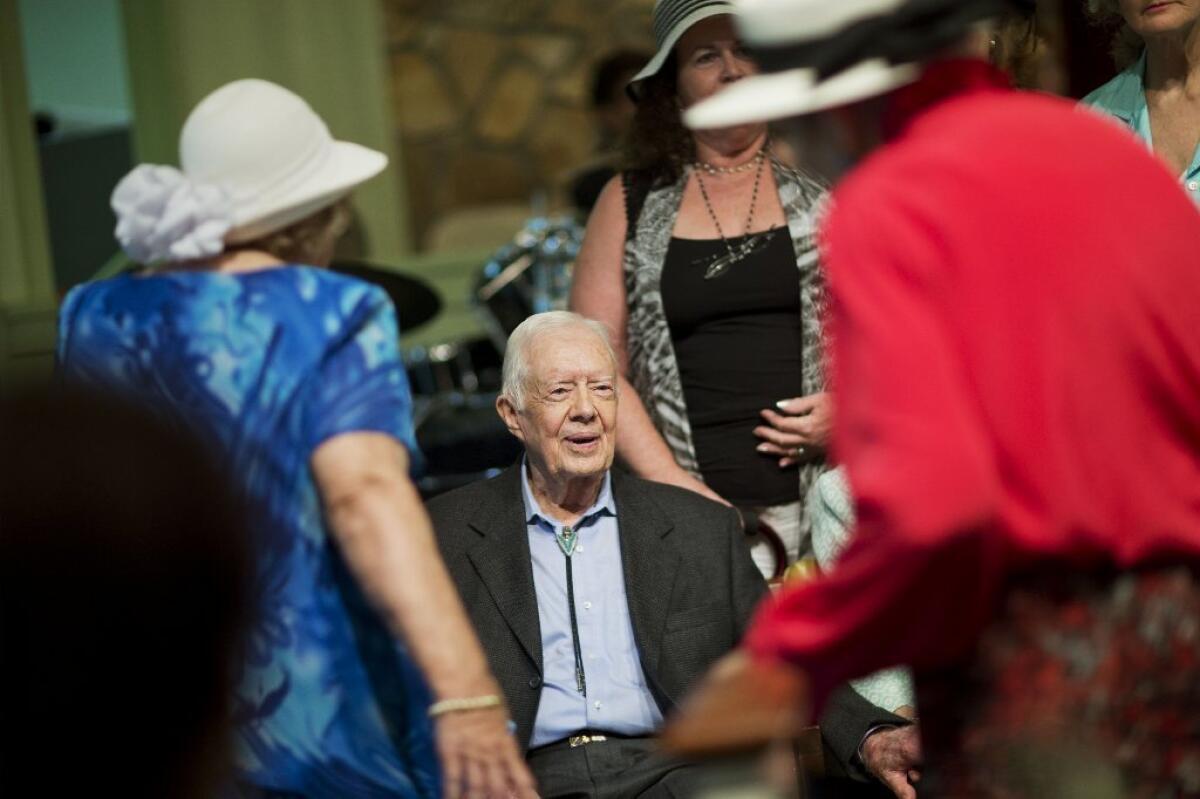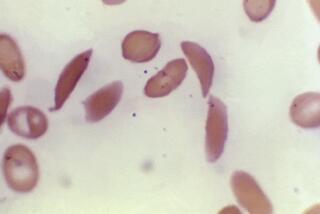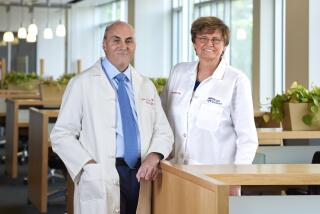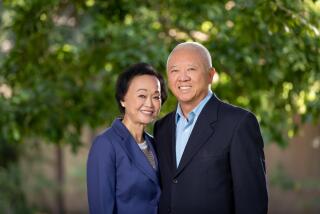Immune therapy researcher wins Lasker-Debakey Award

Immune system therapies that owe their origins to insights made by Dr. James P. Allison have been particularly effective against advanced melanoma, a malignancy with which former President Jimmy Carter has been diagnosed.
James P. Allison, a pioneer in the development of immune therapies for cancer and other diseases and an immunologist at M.D. Anderson Cancer Center in Houston has won the 2015 Lasker-Debakey Award for Clinical Medical Research.
In the early 1980s, Allison was among the first to describe how T cells, one of the immune system’s fiercest foot soldiers, are activated. Over the following 12 years, he uncovered a process by which T cells’ actions were revved up. And unexpectedly, his work also revealed a process by which the immune system applied the brakes to T cells’ activities.
Sometime after T cells were fired up, they commonly encountered a “checkpoint,” Allison found. Even in the face of a growing malignancy, one checkpoint molecule that Allison identified -- cytotoxic T-lymphocyte-associated protein-4 -- would prevent the T cells from becoming completely activated.
Before long, Allison began to explore the implications of his findings for the treatment of infectious diseases and illnesses such as cancer became clear. While powerful, the human immune system was sometimes trying to fight cancer with one hand tied behind its back.
Perhaps, rather than trying to alter the course of diseases directly, medicines could be devised that gird a patient’s faltering immune system for battle and send in the T cells, disabling their brakes so they can finish the job.
In early research with mice, Allison said Tuesday, the approach allowed his team to “ignore” the cancer. “We weren’t trying to treat the cancer; we were trying to unleash the immune system” to do that, he said.
Medicines based on these principles have already changed the landscape of some cancer treatment. For malignant melanoma, for instance, it led to the development of a CTLA-4 blockade, ipilimumab (known commercially as Yervoy). Since entering the U.S. market in 2011, the treatment has significantly increased patients’ survival times. And for close to a quarter of patients, it appears to drive cancer into remission.
“Checkpoint-blockade immunotherapy has arguably been the most exciting advance made in cancer treatment in recent years,” a UCLA oncologist, Dr. Antoni Ribas, wrote in an article published Tuesday in the New England Journal of Medicine.
Allison’s notion of immune system “checkpoints” have led to new insights, which in turn promise new immune therapies for a wider range of malignancies, wrote Ribas. The development of melanoma and long-cancer treatments pembrolizumab and nivolumab (Keytruda and Opdivo, respectively), as well as immune therapies in development to treat more than 30 types of cancer, can trace their origins to Allison’s insights, he wrote.
Allison, a native Texan, plays harmonica in a garage band called The Checkpoints, made up of fellow immunologists. He is the son of a doctor, and he has said his interest in cancer has been galvanized by personal losses: his mother, two uncles and a brother have all died of cancer.
But on Tuesday, Allison said he had not set out to do more than conduct “basic science,” exploring immune system dynamics. He and others honored by the Lasker Foundation asserted that amid dwindling federal research budgets, support for the conduct of basic science is being shunted aside in favor of “translational” work -- biomedical research directly related to the development of treatments and medicines.
“We need an agenda. But we need an agenda that favors funding of quality science,” said Allison. “Otherwise we’re not going to have anything to translate.”
Follow me on Twitter @LATMelissaHealy and “like” Los Angeles Times Science & Health on Facebook.







